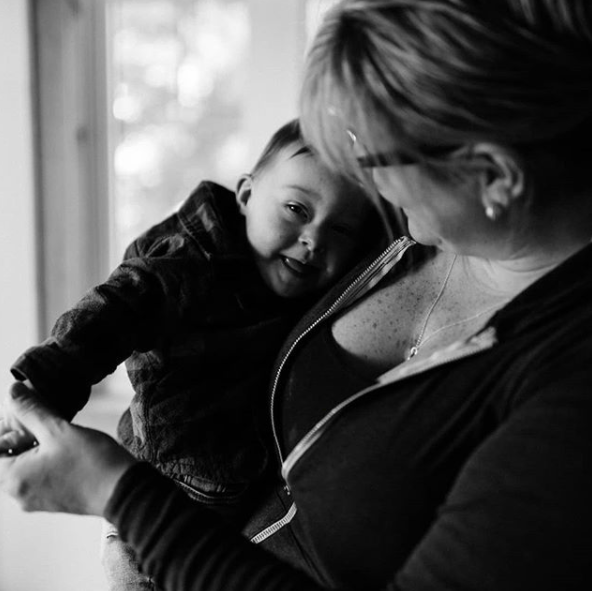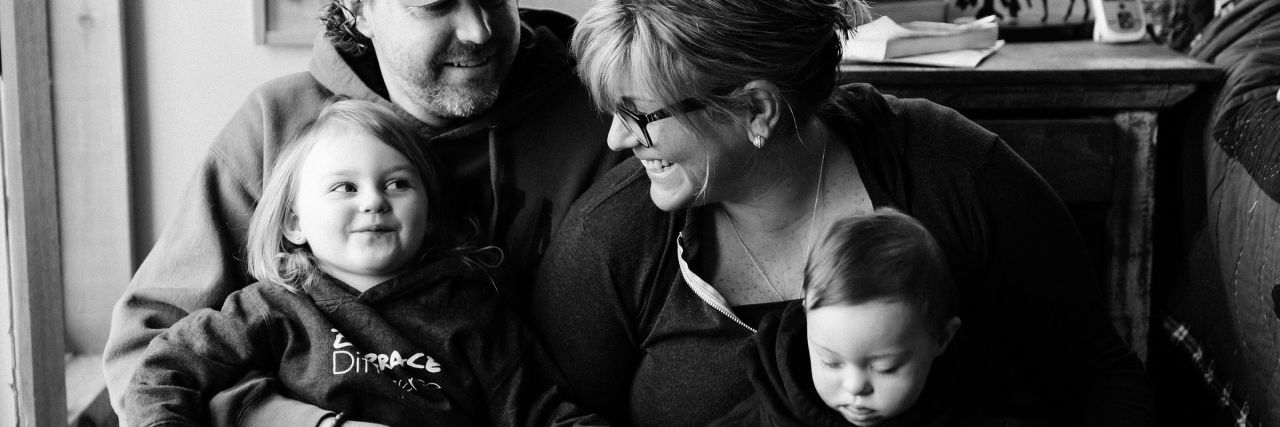I once read, “Words are like bees, some create honey and others leave a sting.” This quote could never be more relevant than it is now in my life. Annoyed, irritated, miffed, hurt, pissed, or sad, these are just some of the symptoms from the words that can sting us hard. As loving beings, we all have our own, unique set of life experiences, emotional codes and stored memories that may cause certain words or situations to completely “sting” our inner selves and bring our flow out of its natural balance.
On the daily, words are said by others or we can witness situations that instantly ignite the fire in our bellies. We start to feel the lump form in the back of our throats, our hearts begin to pound a little faster, our eyes can get watery, our skin begins to vibrate, our emotions have awakened. We have been “stung” and we are ready to respond. But how and what is the best response? This is one of the key questions I am drawn to in all the parenting support groups as it relates to our lives raising a son with Down syndrome. I have often wondered, does anyone have the right answer or does it even exist?
Our family just celebrated our beautiful boy Harvey’s 3rd birthday! This gave us time to reflect on the incredible joy and unexpected awakening journey this has been for our family over the past three years. However, I still often sit with and reflect upon the many harsh words that hit our core, words that still seem to unsettle my soul and leave me grappling with how to respond to many different scenarios. I suppose I felt many moons ago that as the days passed, after countless meditations, and as Harvey grew older some of the early day stings would naturally fade away. I felt that I would eventually know how to respond ninja-quick in many situations with the right answers when I have been emotionally stung by words.
Three years later and now in the present moment, some words, jokes, annoyances and everything in between can still sting. They bite, they burn and they still hurt my heart. For me, it’s when someone close to me says the “R-word,” or I overhear a person making fun of people with disabilities. The jokes, the laughter around persons with disabilities activate my emotional radar and I begin searching within for the best way to respond to these situations to feel as little hurt, anger, annoyance and frustration as possible. Feeling totally vulnerable in these situations, it saddens me that many times I still struggle to find the right words to convey to others when hoping to shift many of these experiences into teachable moments. It’s a work in progress!

Last week, my husband and I were perusing Netflix in the mood for a good ole belly laugh. We came across the movie “The Week Of” about two fathers and their hectic lives a week before the wedding of their children. Adam Sandler plays the father of the bride. We thought this movie would provide the laughter we yearned for.
Eleven minutes into the movie, there’s a scene where Adam Sandler’s wife, son and family are in his living room catching up, talking about a play his son recently starred in while attending day camp. The grandma, very intrigued and excited asks, “Was it a Juilliard camp?” The mother responds, “No.” The grandma then asks, “Was it a camp for theatrical children?” The mother responds, “No.” The grandma then says, “It wasn’t a special ed camp, was it?” The Mother says, “No.” The grandma looks up, waves her hand in the air and responds, “Oh, thank God.”
I looked over at my husband. He was quiet. I was quiet. We were both stung and it hurt. I could feel the energy in the room had shifted from laughter and lightness to stillness and sadness. I touched his hand, looked at him and quietly asked him for the first time, “Did that joke hurt you?”
It was a genuine breakthrough moment for us. He responded, “Yeah, it was a really shitty joke. It wasn’t funny and I am unsure why they felt it was necessary to even include it in the movie.” I didn’t find it funny either. We both have unconditional, loving emotions connected to a living being with disabilities and this “joke” struck a chord for us. For some reason, this specific moment opened the vault and the conversations began to flow.
Laughter or jokes at the expense of the disability community really sting me and most likely always will. We strive continually for inclusion, acceptance and acknowledgment that our children’s lives matter. We advocate that our children’s lives have purpose, that everyone is beautiful and deserves to be valued. It is my belief that these kinds of “jokes” assist with keeping “the invisible door open” that “it’s OK” to chuckle about someone that might look different than society’s “normal.” These jokes normalize laughing out loud that someone might be at a different pace of cognitive ability or attended a special education camp.
Together, families of kids with disabilities advocate to embrace difference, not to giggle at it or mock it. Vulnerably speaking, these jokes sting me, they hurt me and I am now quite OK admitting it openly and embracing that this is where I am at in my own personal journey.
Naturally, this movie didn’t work for us. It was the opposite of what we were envisioning, so we happily turned it off and continued our unexpected conversation.
The silver lining of this experience is that this became a real moment of connection and openness for both of us. It helped us greatly with the question, “What is the best response when you are stung hard by words?” — a conversation that was long overdue. We shared many intimate things that personally hurt us and some of the irritants from others that have surfaced since our son Harvey has joined our family. It was refreshing to release these long-held emotions and feel a strong sense of trust not to be judged or told to “get over it” or “it’s just a joke.”
Lightness began to fill the room again. We shared very similar beliefs on how we feel humans have our own unique set of life circumstances, lived moments, emotional codes and stored memories that can sting us all differently. We both began to realize and accept that these real emotions are more than OK to have and the importance of sharing with one another. A situation that might irk me could have the complete opposite reaction for someone else. I sincerely hope that moving forward in this ever-changing world, we all will be more conscious and accepting of this reality.
I’ve realized I need to be a little more gentle with myself throughout this journey of life, living and learning. It’s all right not to have all the answers as just maybe one size doesn’t always fit all. Maybe there isn’t one particular cookie-cutter answer for every single situation that stings us, except to be more accepting and embracing of the emotions that may surface from each of the stings.
Lastly, I hope every advocacy piece written and shared over time will help bring some awareness to those who still choose to find humor in mocking persons with disabilities (or any loving being for that matter) and that each advocacy piece will bring us one step closer to transforming the stings into a big pot of honey!
“Be careful with your words, once they are said, they can only be forgiven not forgotten” –Unknown

